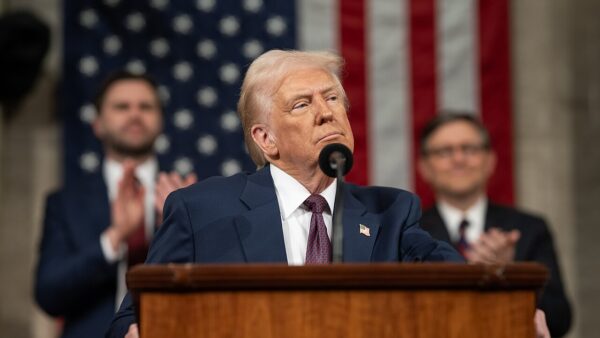China has been signalling for years that it would like to open sections of its state-run economy to foreign investment and competition. Now it seems to be happening.
Since 1999 China has been encouraging its companies to “Go out!”, meaning get out and compete in the global marketplace. What the business world thought they’d never hear is “Come on in!”, because China has kept a close guard over much of its state-orchestrated economy.Â
It seems now all that’s about to change: the Xinhua news agency has announced that foreign investors will finally have the opportunity to put their money into 80 major public infrastructure projects that are presently at the planning stage.
The schemes will cover railway and harbour construction, fibre-optic cabling, hydroelectric, wind and photovoltaic power plants, as well as modernisation projects in the hydrocarbon and chemical industries. The precise projects and their values have not yet been given.
A statement released after a State Council meeting presided over by Premier Li Keqiang in April said that the move was intended to “accelerate reform of the country’s investment and financing mechanism and to push forward the diversification of investing entities”.
The projects will be open to public bidding, and the government encourages the participation of private capital– China State Council
The State Council said: “The projects will be open to public bidding, and the government encourages the participation of private capital in the construction and operations of those projects through joint ventures, sole proprietorship and franchise.”
It added that guidance for foreign investment review and approval would be released as soon as possible.
A particular focus was on the railway sector. Last year the government indicated that it wanted to encourage private capital to play a role in the construction of railways, as well as affordable housing, water resources projects and airport construction. To that end, the central government announced that it will float $24bn in railway financing bonds in the course of 2014.
The People’s Daily newspaper quoted Sheng Guangzu, general manager of China Railway Corporation, as saying China planned to invest $116bn in its railways this year. The investment, which is $3bn more than originally planned, will cover the construction of 48 projects with 7,000km of track. His remark was in response to speculation that a capital shortage has caused delays in railway development.
A long time comingÂ
The move to attract foreign investment is motivated by a number of factors. One is to improve the performance of public sector projects. The State Council statement said private investors would be encouraged to enter area that are “monopolistic in nature” or “used to be dominated by government investment and SOEs [state-owned-enterprises]”, so one hoped-for result is the introduction of competition.
Another is to increase to increase productivity and boost demand at a time when growth is slowing to 7.4%, its lowest annual rate since the 1990s. Last week Li said the focus remained on the quality of growth and on changing the structure of the economy.
The Chinese Communist Party has been talking about reforming its giant SOEs for a long time. In the 1990s, smaller SOEs were privatised and others merged to create gigantic corporations.
In the construction sector, Chinese firms now occupy four of the top six spots in the Engineering News-Record‘s league table of global contractors.
Wen Jiabao, China’s former prime minister, made it clear in a speech in March 2012 that China needed to break the grip of the SOEs on the Chinese economy and create more efficient markets, both for the firms themselves and for investors.
In practice reform has proved difficult, however, partly, it is thought, because SOEs contribute $320bn to the China’s tax take, or about 20% of the total.
However, the party’s determination has been growing. A plenary meeting of the Communist Party Central Committee in November pledged to let markets play a greater role and to recognise the private sector’s role in fostering growth and creating jobs. It added that it was considering allowing state-owned contractors to develop as mixed ownership companies.










